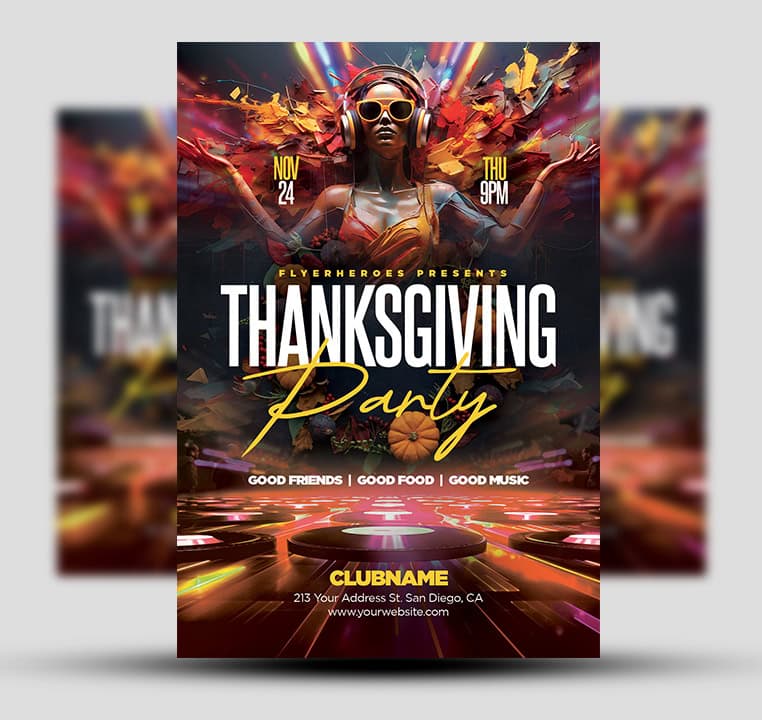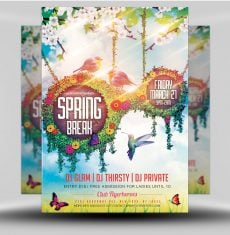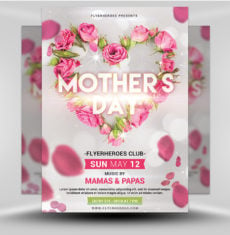It’s that time of the year again! Amazing food, tasty drinks, great music – Thanksgiving! If you are wondering how to attract more people to your venue, try using our Thanksgiving party flyer. It is a hassle-free way to let everyone know what, where and when!
This futuristic flyer features darker autumn hues in the background and a stunning, goddess-like beauty posing as a DJ, with yellow sunglasses and headphones on. The lower part shows rows of DJ records ready for spinning and creating a great party. Elegant typography in bright colors, as a contrast, gives all the info on your big party. Just edit everything you want easily and quickly and you are in a possession of your own flyer you can use again and again, whenever you need to!
Leave the waiting to someone else! Download Thanksgiving party flyer today and prepare for a party to remember!
Fonts Required
General Information:
This flyer template is a premium Photoshop PSD flyer/poster template designed by FlyerHeroes to be used with Photoshop CS4 and higher.
Once you have purchased this flyer template, you are free to make any customizations and modifications you’d like.
You are also granted an unlimited use and 100% royalty-free license, meaning you can use this product as many times as you wish. You are free to use this product in both personal and commercial work.
You can read more about our file licenses here and our file requirements here.
If you have any further questions, please feel free to direct your questions to FlyerHeroes Support.

















